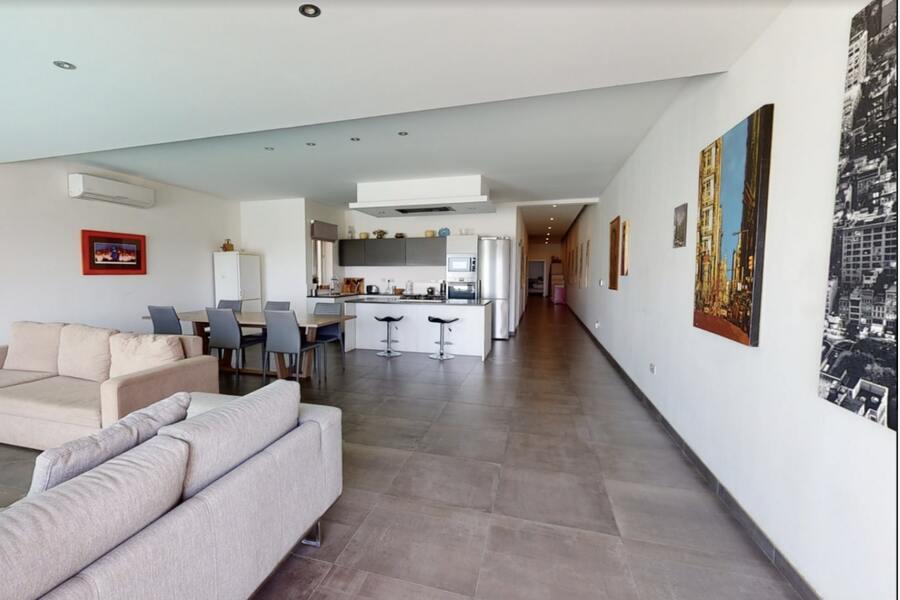Main
Rent Registration in Malta: Ensuring Fairness and Transparency
Knowing Malta
Discover the rent registration system in Malta through this comprehensive blog. Understand its purpose, benefits, and the process involved. Learn how compliance ensures fairness and transparency for both landlords and tenants, promoting a balanced rental market. Gain valuable insights into the rental landscape in Malta.
Renting a property is a common practice in Malta, with a significant number of individuals and families opting for this housing solution. To ensure fairness and transparency in the rental market, the Maltese government has implemented a rent registration system. This system aims to protect the rights of both landlords and tenants, providing a structured framework that governs rent agreements. In this article, we will delve into the details of rent registration in Malta, exploring its purpose, benefits, and the steps involved in the process. By shedding light on this important aspect of the rental market, we hope to provide a comprehensive understanding of the system and its impact on the rental landscape in Malta.
1. Background of Rent Registration in Malta 
Rent registration in Malta is regulated by the Housing (Decontrol) Ordinance, a legal framework that was introduced to safeguard the interests of tenants and landlords. The primary objective of this system is to promote fairness, transparency, and accountability in the rental market. Prior to the implementation of rent registration, the market faced various challenges, such as arbitrary rent increases and insufficient tenant protection. The introduction of the rent registration system aimed to address these issues and provide a structured mechanism for rent regulation.
2. The Purpose and Benefits of Rent Registration
The rent registration system in Malta serves several important purposes. Firstly, it ensures that rent increases are reasonable and prevent landlords from arbitrarily raising rents. By registering the rental agreement, both parties are bound by the agreed-upon terms and conditions, providing stability and predictability for both tenants and landlords.
Secondly, rent registration enables the government to collect data on the rental market, which aids in policy-making and ensures the availability of accurate information for statistical analysis. This information is crucial in understanding the dynamics of the rental market, identifying trends, and formulating effective measures to address any imbalances.
Furthermore, rent registration provides legal protection for tenants. It establishes a formal record of the rental agreement, ensuring that tenants' rights are upheld and providing them with a means of recourse in case of disputes or breaches of the agreement.
For landlords, rent registration offers a secure legal framework for their rental properties. It provides clarity and protection against tenants who may attempt to default on their obligations. Moreover, registered rental agreements can be used as supporting documentation for legal and financial purposes, such as obtaining loans or proving rental income for tax purposes.
3. The Process of Rent Registration
Rent registration in Malta involves a series of steps that must be followed by both landlords and tenants. The process typically begins with the signing of a lease agreement, which outlines the terms and conditions of the rental arrangement. Once the agreement is signed, it must be registered with the Housing Authority within ten working days.
The registration process requires the submission of relevant documents, including a completed application form, a copy of the lease agreement, and any other supporting documents requested by the authority. It is important to note that both the landlord and the tenant must provide their consent for the registration.
Upon submission of the application, the Housing Authority reviews the documents and verifies the information provided. Once the application is processed, a rent registration certificate is issued, confirming the registration of the rental agreement. This certificate serves as proof of registration and should be retained by both parties for future reference.
In case of any changes to the terms and conditions of the rental agreement during its validity, such as rent increases or extensions, the parties involved must inform the Housing Authority within ten working days. Failure to report these changes can result in penalties or the invalidation of the agreement.
4. Consequences of Non-Compliance
Non-compliance with rent registration requirements can have serious implications for both landlords and tenants. If a rental agreement is not
registered within the stipulated timeframe, it may be considered invalid, and the legal protections provided by the system may not apply. Additionally, failure to report changes to the rental agreement can result in penalties and may lead to disputes between landlords and tenants.
It is crucial for both parties to understand their obligations and responsibilities under the rent registration system. Landlords should ensure that they register their rental agreements promptly and report any changes as required. Tenants, on the other hand, should verify that their rental agreements are registered and keep a copy of the registration certificate for their records.
Rent registration in Malta plays a pivotal role in fostering fairness and transparency in the rental market. By implementing a structured framework, it offers protection to both landlords and tenants, ensuring that their rights and obligations are upheld. The system promotes stability, prevents arbitrary rent increases, and provides a means of legal recourse in case of disputes.
It is essential for all parties involved in a rental agreement to comply with the rent registration requirements. Landlords should register their agreements promptly and report any changes, while tenants should verify the registration status of their agreements to ensure their legal protection.

By adhering to the rent registration system, Malta aims to create a balanced and regulated rental market that benefits both landlords and tenants. Continued efforts to educate and raise awareness about the importance of rent registration will contribute to a fairer and more transparent rental landscape in Malta.

